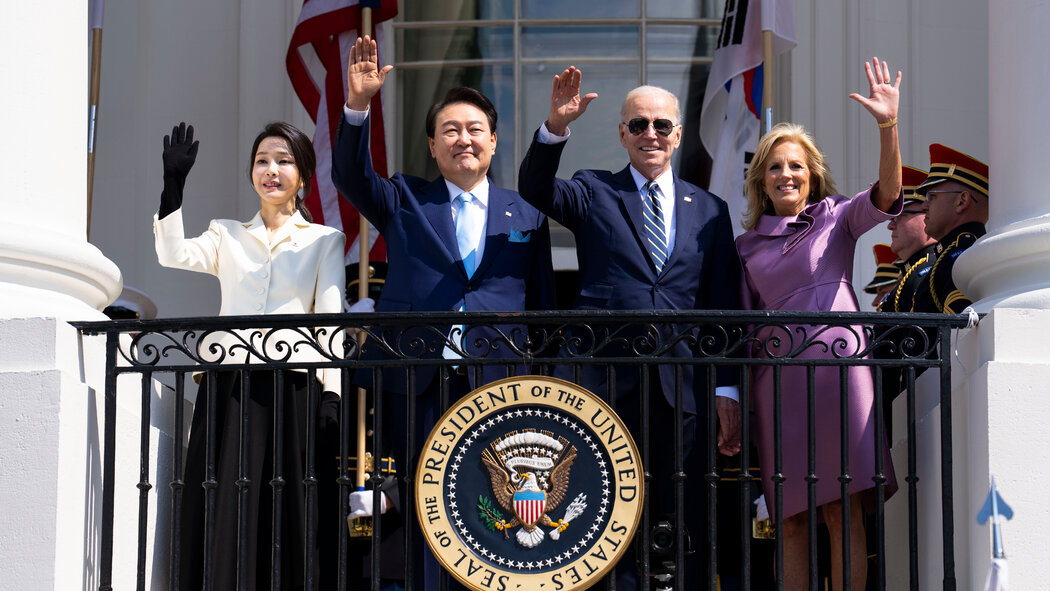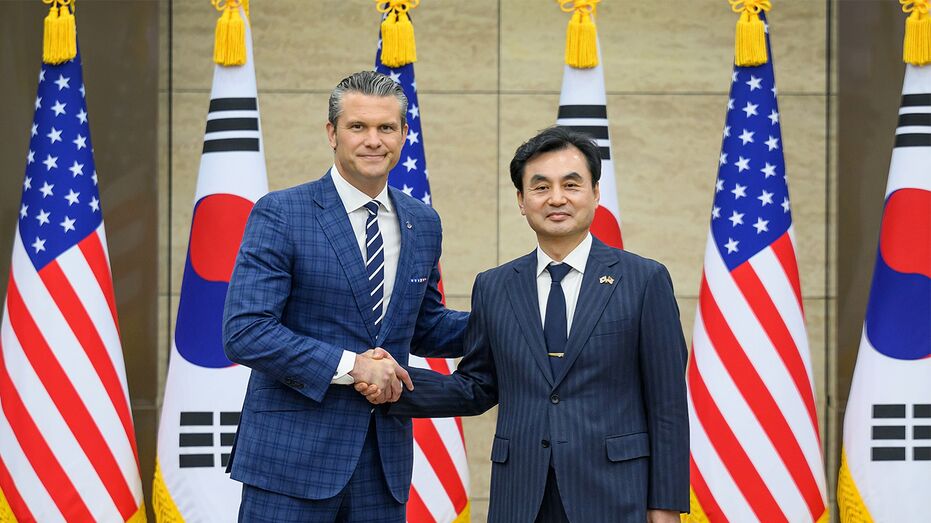
U.S. Supports South Korea’s Military Expansion Amidst Rising Tensions
Published on [Insert Date]
U.S. Defense Secretary Commends South Korea’s Military Spending Plans
On Tuesday, U.S. Pentagon chief Pete Hegseth commended South Korea’s intentions to bolster its military budget, a move seen as essential in responding to increasing threats from North Korea. During security discussions with South Korean Defense Minister Ahn Gyu-back in Seoul, Hegseth voiced optimism regarding South Korea’s commitment to enhance its defense capabilities.
Hegseth noted that the United States has been encouraging its ally to invest in conventional defense mechanisms. This strategy would allow the U.S. to concentrate its military focus on countering potential threats from China, which has been ascending in regional power and influence.
Commitment to Defense Spending and Modernization
In a significant announcement, South Korean President Lee Jae Myung put forth a request to parliament for an approval of an 8.2% increase in defense spending for the upcoming year. He articulated that this proposed increase is crucial for updating the military’s weaponry and diminishing South Korea’s dependence on U.S. military support.
Highlighting ongoing defense collaborations, Hegseth underscored the importance of U.S.-South Korean partnerships in the maintenance of naval vessels. He pointed to South Korea’s shipbuilding expertise as a vital asset that would ensure combat readiness in any emerging crises. “We face, as we both acknowledge, a dangerous security environment, but our alliance is stronger than ever,” said Hegseth, reinforcing the significance of these collaborative efforts.
Addressing North Korean Aggression and Regional Threats
The conversation between the U.S. and South Korea centered on addressing not only North Korean threats but also other regional security issues. Hegseth emphasized the necessity of maintaining flexibility in regional defense strategies. It is imperative that U.S. and South Korean forces work in tandem to ensure that the Democratic People’s Republic of Korea (DPRK) does not pose a significant threat to South Korea, particularly through nuclear deterrence.
Nuclear Capabilities and Regional Security Dynamics
As discussions unfolded, U.S. and South Korean officials explored potential integrations of U.S. nuclear capabilities with South Korea’s conventional military assets. Currently, South Korea does not maintain a nuclear arsenal. Defense Minister Ahn dismissed rumors regarding the nation’s pursuit of an independent nuclear weapons program or any intentions to seek the redeployment of U.S. tactical nuclear weapons, which were withdrawn from the peninsula during the 1990s.
Escalating Tensions: North Korea’s Military Activities
On the same day of the talks, South Korea’s Joint Chiefs of Staff reported that North Korea had test-fired artillery rounds into its western waters, an action interpreted as a signal of defiance ahead of Hegseth and Ahn’s visit to a border village that historically signifies division. Earlier in the week, Hegseth himself visited the Demilitarized Zone (DMZ) that serves as a buffer between the North and South, underscoring the heightened military readiness and the ongoing tensions on the Korean Peninsula.
















